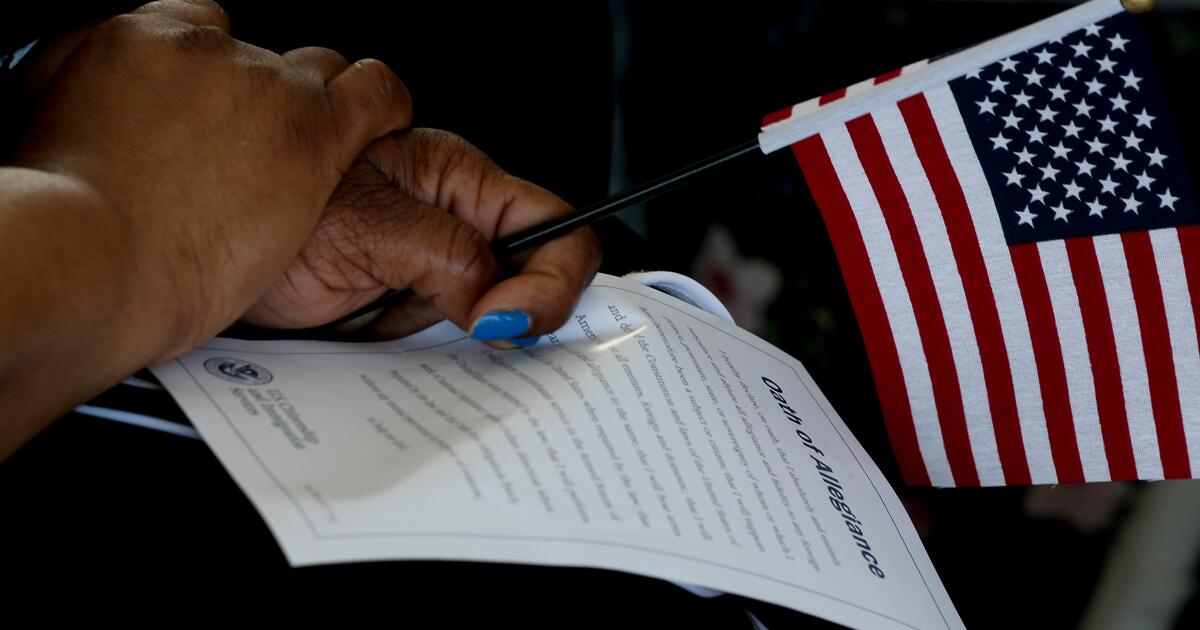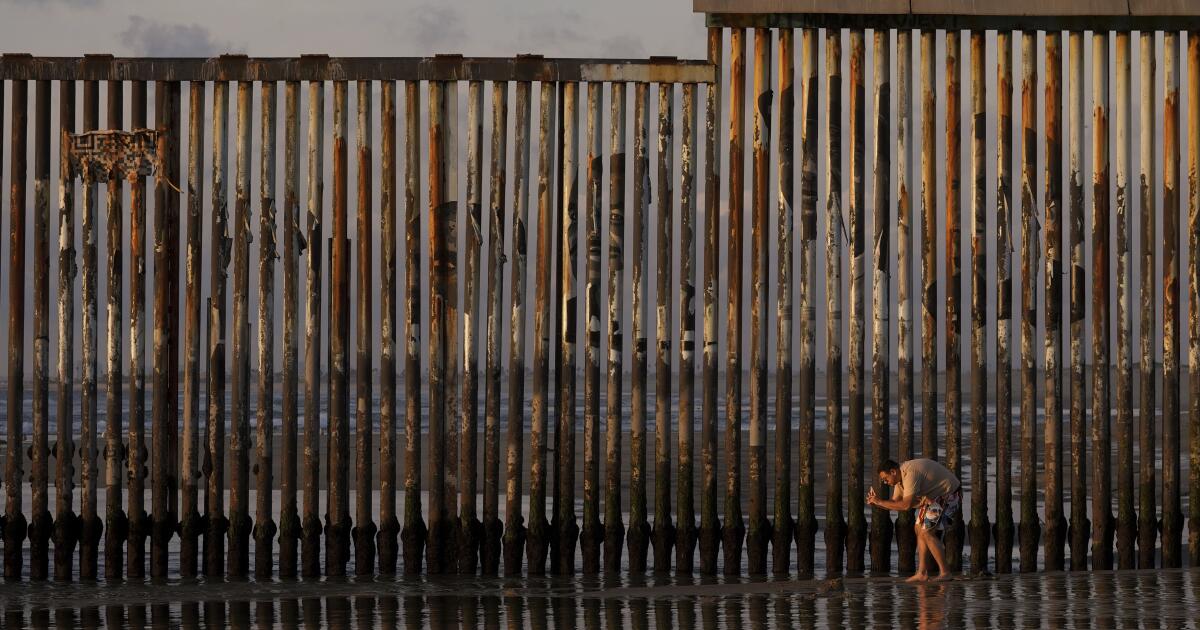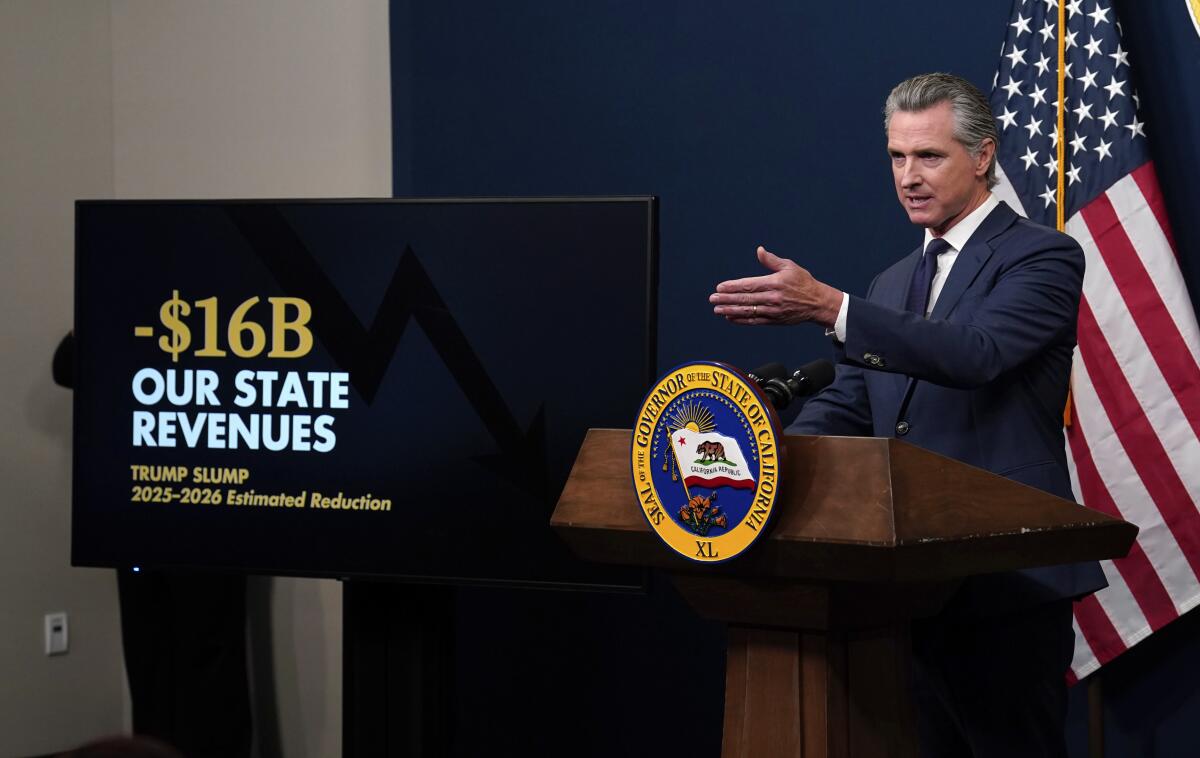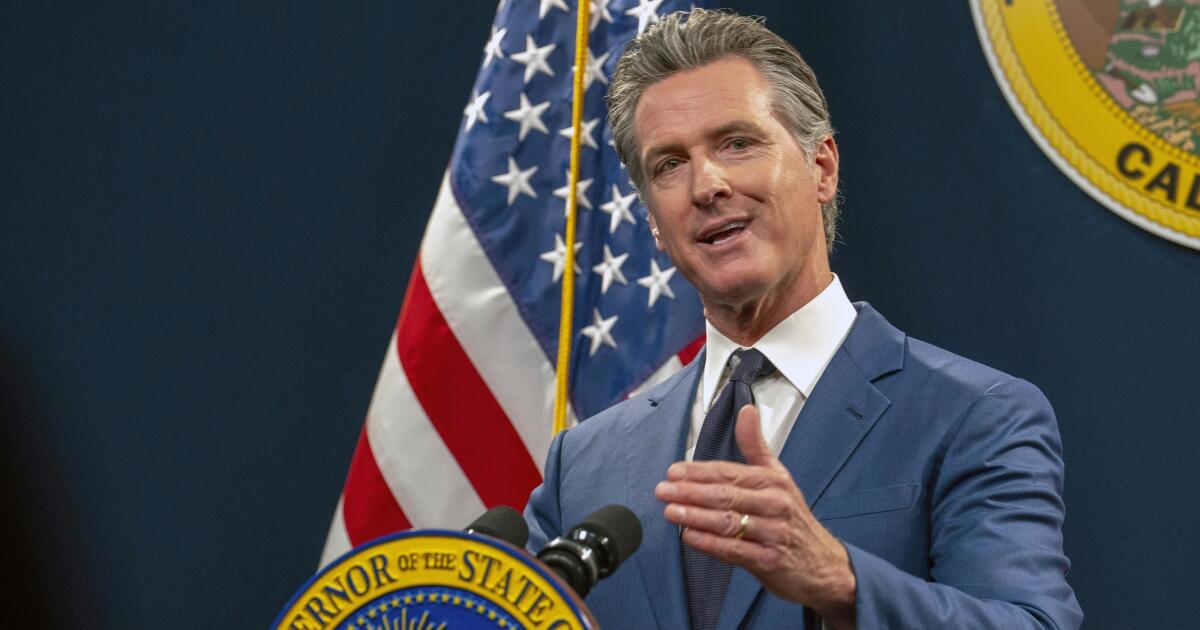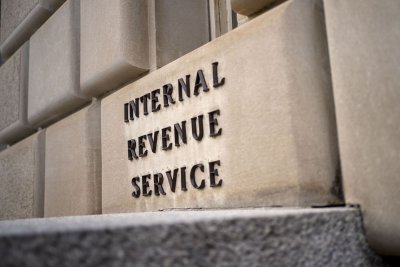Living in lockdown: Undocumented immigrants trade freedom for safety
WASHINGTON — An undocumented man from Guatemala who has leukemia postponed chemotherapy because he was afraid to go to the hospital.
A Mexican grandmother packed most of her belongings into boxes, in case she is deported.
A Pentecostal church in East Los Angeles has lost nearly half of its in-person membership.
Across California and the U.S., immigrants are responding to the Trump administration’s unrelenting enforcement raids by going into lockdown. Activities that were once a regular or even mundane part of life — taking kids to school, buying groceries, driving — have become daunting as immigrants who lack legal authorization grapple with how to avoid arrest and deportation.
To stay safe, some immigrants have swapped in-person activities with digital approximations. Others are simply shutting themselves away from society.
“It’s a harmful form of racial profiling combined with the suspension of constitutional rights and due process. That’s why many families are staying at home,” said Victor Narro, a professor and project director for the UCLA Labor Center.
Pastor Carlos Rincon said that about 400 people used to attend his church every week. Now, half as many attend and viewership of live-streamed services on Facebook and YouTube has increased.
(Jason Armond / Los Angeles Times)
Pastor Carlos Rincon, who leads a Pentecostal church in East Los Angeles, said that about 400 people used to attend his church every week, people with roots in Guatemala, Mexico, El Salvador and Honduras. Now, half as many attend and viewership of live-streamed services on Facebook and YouTube has increased. Some prayer groups meet on Zoom.
In January, the Trump administration said immigration agents were free to make arrests in sensitive locations once considered off limits, such as hospitals, schools and churches.
At Rincon’s church — which he asked not be named for concern about retaliation — fear has colored life in ways large and small.
A congregant in his late 20s who has leukemia postponed his chemotherapy, afraid he could be caught and deported to Guatemala. After he decided to reschedule the upcoming treatment, church leaders agreed they will take turns staying with him at the hospital.
Pastor Carlos Rincon says he has had to cancel a music class for children due to the raids. (Jason Armond / Los Angeles Times)
The Trump administration has said immigration agents are free to make arrests in locations once considered off limits such as hospitals, schools and churches. (Jason Armond / Los Angeles Times)
A half-day program to provide resources for landscapers and a music class for children were canceled this month after many said they were too afraid to attend. Rincon restarted the music class last week for those who could attend.
On Wednesday, after neighbors told him that immigration agents had been lurking around the area, he warned families against attending a regularly scheduled in-person church service.
Five miles away at Our Lady of Lourdes Church, Father Ricardo Gonzalez said church attendance is down at least 30%. The church doesn’t live-stream Mass, though he’s considering it.
Gonzalez said parishioners expect him to have answers, but as an immigrant green card holder himself, he too doesn’t know how to react if immigration agents show up at the church.
“If I get arrested, am I going to be thrown from the country?” he said. “Who is going to help me out?”
Pastor Carlos Rincon and his wife, Amparo, sing and pray during a livestream service at their church.
(Jason Armond / Los Angeles Times)
For weeks, agents have been arresting those who show up at courthouses for their immigration proceedings.
Volunteers at USC, UCLA, UC Irvine and UC Law San Francisco responded by establishing a free hotline to help people file motions to move their appointments online. The service was the idea of Olu Orange, a lawyer and USC political science and international relations professor who runs the Agents of Change Civil Rights Advocacy Initiative.
Since the hotline (888-462-5211) went live June 15, volunteers have responded to nearly 4,000 calls and helped more than 300 people fill out the form to move their hearings online.
On Friday, Orange answered a call from a girl who sounded about 12 years old, whose parent had been picked up by immigration agents.
“She saw this number on social media and she called and she said, ‘What can I do?’” Orange said. He gave her the number for CHIRLA, a local immigrant rights nonprofit.
Luz Gallegos, executive director of TODEC Legal Center in the Inland Empire, said the pandemic prepared some rural and elderly residents for the current reality because it taught people to use technology — “to go virtual.” Now they have WiFi access and know how to use Zoom.
Some, though, also fear staying digitally connected.
Gallegos said many people who call TODEC’s hotline say they are changing phone companies because they are afraid of being tracked by immigration agents. Others say they’re swapping cellphones for pagers.
A woman identified only as Doña Chela at her home Tuesday. She has packed up her possessions planning to return to her hometown in Michoacan, Mexico, for the first time in more than 25 years. But her brother said it wasn’t safe.
(Julie Leopo / For The Times)
Many of the immigrants served by TODEC now leave their homes only for work, Gallegos said. They have groceries delivered or run to the store when they think border agents are least likely to be on patrol. Before schools let out for the summer, some parents switched their children to online classes.
Some Inland Empire farmworkers now won’t grab their own mail from community mailboxes, Gallegos said, so TODEC has mobilized volunteers to drop off mail, give people rides and help with interpretation needs.
One person helped by the nonprofit is Doña Chela, an undocumented 66-year-old woman who asked to be identified by her nickname.
Many months ago, Doña Chela packed up her possessions after making plans to return to her hometown in Michoacan, Mexico, for the first time since she arrived in the U.S. in 1999. But in April, her brother called to say it wasn’t safe there, that cartel groups had taken over the neighborhood and were extorting residents.
Her husband, a U.S. citizen, has dementia. She thought of moving instead to a border town such as Mexicali, where she and her husband could still be near their three adult U.S.-born daughters.
Doña Chela stands by the packed luggage in her home. (Julie Leopo / For The Times)
Doña Chela waters her home garden. “If it wasn’t for this garden I would not know what to do with myself,” she said in Spanish. (Julie Leopo / For The Times)
But then her husband’s condition began to decline, and now starting over feels too difficult. Even so, she has chosen to keep her clothes, pots and pans, and jewelry packed away — just in case.
Doña Chela doesn’t leave her home except for emergencies. Her daughters bring her groceries because she has stopped driving. She no longer goes to church or makes big batches of tamales for community reunions. She barely sleeps, thinking that agents could burst through her door any time.
“I don’t know what to do anymore,” she said, crying. “I will wait here until they kick me out.”
Her only distraction from constant anxiety is the lush garden she tends to daily, with mangoes, nopales, limes and a variety of herbs.
Gallegos, of TODEC, said the situation faced by Doña Chela and so many others bring to mind a song by Los Tigres del Norte — “La Jaula de Oro.” The golden cage.
“Our community is in a golden cage,” she said. “I hope it’s not too late when this country realizes they need our immigrant workforce to sustain our economy.”
St. John’s Community Health, one of the largest nonprofit community healthcare providers in Los Angeles County that caters to low-income and working-class residents, launched a home visitation program after it surveyed patients and found many canceling appointments “solely due to fear of being apprehended by ICE.”
The clinic, which serves L.A., the Inland Empire and the Coachella Valley, said that since the immigration raids began, more than a third of all patients didn’t show up or canceled their appointments.
Some of those who canceled signed up for telehealth or home visits performed by a small team of medical staff, according to Jim Mangia, the clinic’s chief executive. The clinic is adding another home visitation team to double the amount of visits they perform.
Community coalitions are stepping in to help immigrants who can’t afford to hide. OC Rapid Response Network, for instance, raised enough funds through payment app Venmo to send 14 street vendors home.
Robb Smith stands by the food he delivered after he unloaded his truck at a food drop site on Monday in Paramount.
(Luke Johnson / Los Angeles Times)
Robb Smith, who runs Alley Cat Deliveries, said he has seen requests for grocery deliveries grow by about 25%.
He doesn’t ask his customers if they’re immigrants in hiding, but there are signs that people are afraid to leave their house. One woman, who said she was making an inquiry for a friend, asked him if he saw any ICE officers when he was picking up items at Costco.
1. Tito Rodriguez helps unload Robb Smith’s truck of drieg goods and groceries at a drop site on Monday in Paramount. 2. Robb Smith, left, unloads his truck with the help of Tito Rodriguez at the drop site on Monday in Paramount. 3. Robb Smith carries a box of groceries down a driveway Monday in Long Beach. He founded and runs Alley Cat Deliveries. (Luke Johnson/Los Angeles Times)
Glen Curado, the founder and chief executive of World Harvest Food Bank in Los Angeles, said there has been a significant drop in people coming in to pick up groceries in person. Up to 100 families visit the food bank on a weekday, down from the usual high of 150, he said.
The food bank has a program, called Cart With A Heart, in which people can donate $50 toward fresh produce, protein and other staples to feed two families for a week. The donors can then take those groceries to people sheltering in place.
“It’s almost like a war scene,” Curado said. “You hide here. I’ll go out and I’ll get it for you, and I’ll bring it back — that mentality.”
Castillo reported from Washington and Wong from San Francisco. Times staff writer Melissa Gomez in Los Angeles contributed to this report.
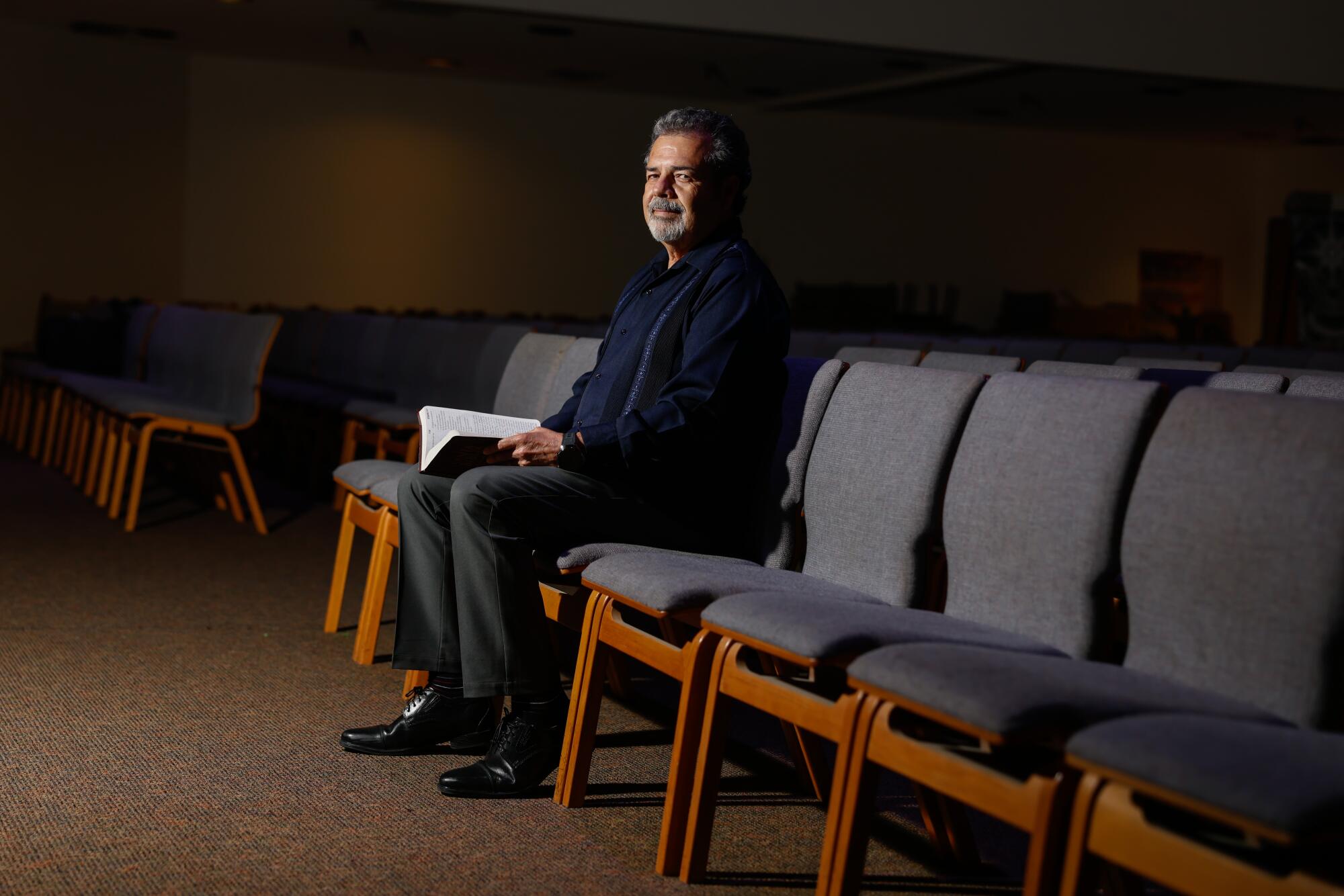






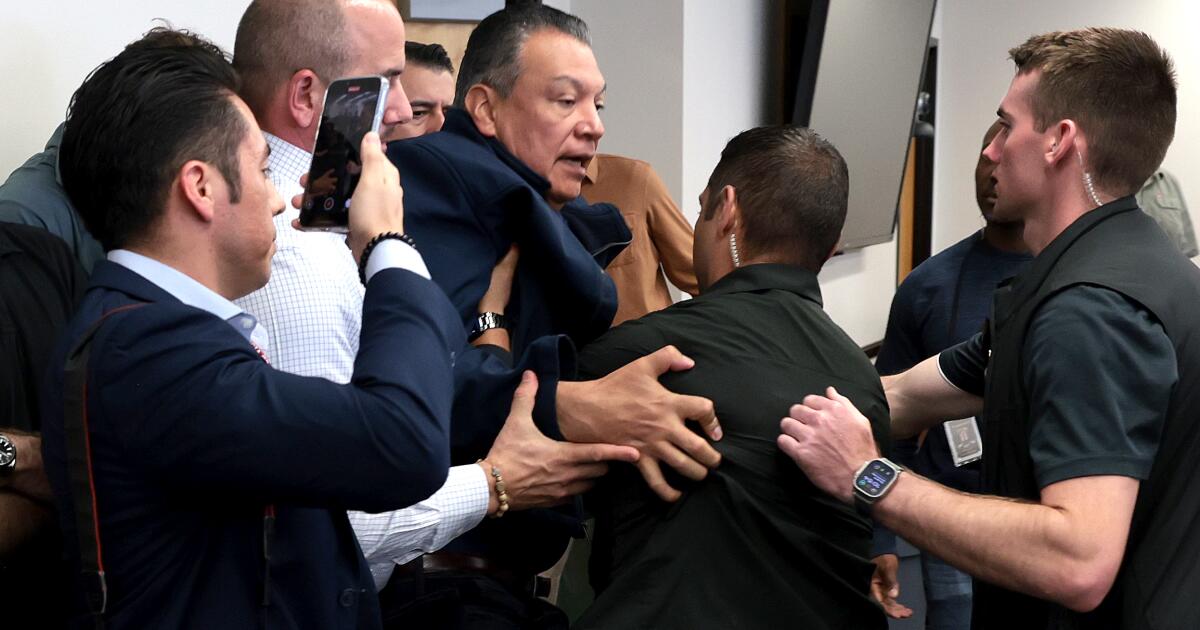
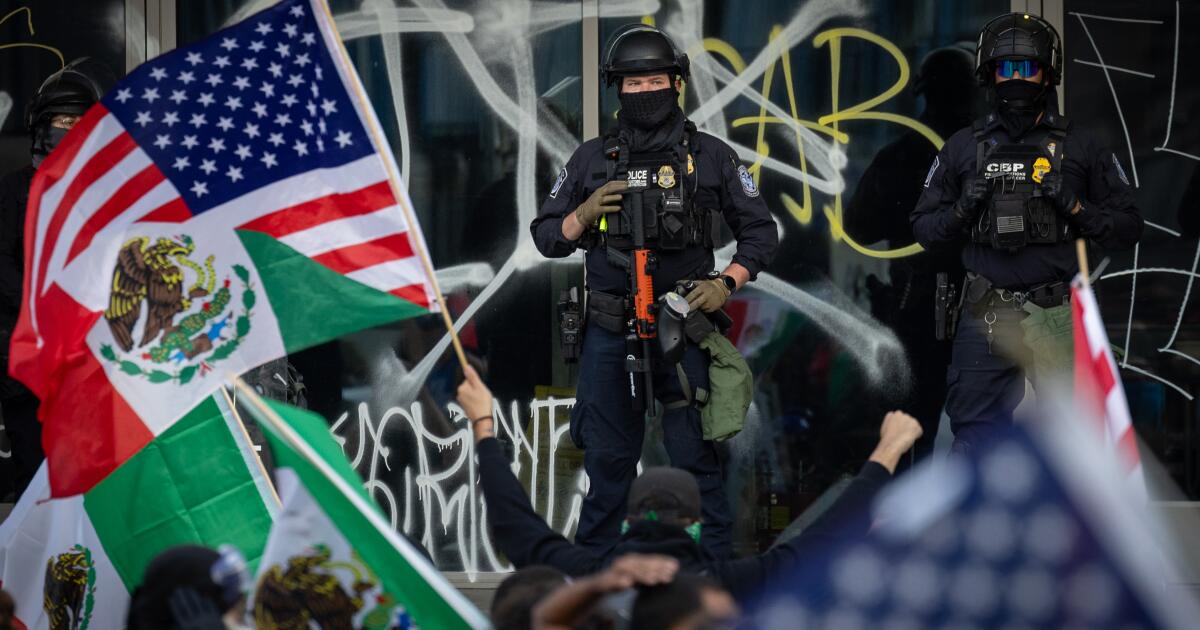


![Prince’s lyrics are personal and often have to do with overcoming pain, trying to be successful and live the “good life.” [Michela Moscufo/Al Jazeera]](https://www.occasionaldigest.com/wp-content/uploads/2025/06/IMG_5788-2-1748242592.jpg)
